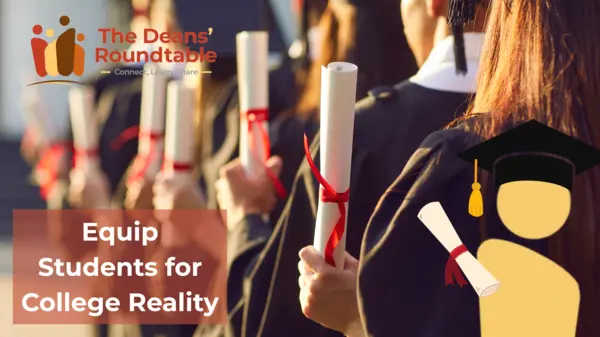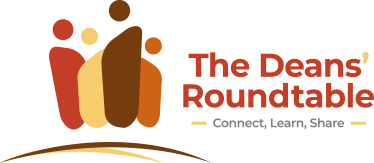College Preparation Beyond Academics: Essential Life Skills for Student Success
The transition from high school to college represents one of the most significant changes in a young person’s life. While academic preparation is crucial, research consistently shows that students struggle with the non-academic aspects of college life. According to a recent survey from CollegeData, students feel least prepared for social issues (28%), life balance (19%), and financial management (18%) alongside academic challenges.
As parents and educators, we need to recognize that college readiness extends far beyond AP classes and SAT scores. Let’s explore the essential life skills students need and practical ways to help them develop these competencies before they leave for college.

Understanding the Life Skills Gap
College readiness goes far beyond academic preparation. According to research published by the Brookings Institution, roughly 60% of high school graduates are not fully prepared to take college-level coursework. But even academically prepared students often lack crucial life skills.
These practical competencies can make the difference between struggling and thriving. As one college professor notes, freshmen often share concerns like: “My roommate showed me how to do my laundry, but now all of my whites are pink” or “I almost burned down the dorm trying to make Top Ramen.” Clearly, learning to “adult” is harder than expected.
Five Essential Life Skill Categories for College Success
1. Financial Literacy
The CollegeData survey revealed that 20% of freshmen ran out of money at least once during their first year. Basic financial skills students need include:
- Creating and following a realistic monthly budget
- Understanding financial aid, loans, and repayment terms
- Managing a checking account and using banking apps
- Making informed decisions about credit cards and building credit
- Distinguishing between wants and needs when making spending decisions
Simple Practice Activity: Have your student create a mock monthly college budget based on realistic numbers. Review it together, looking for overlooked expenses.
2. Emotional Well-Being and Resilience
College transitions can trigger emotional challenges that affect student success. According to CHOC Mental Health experts, students need skills to:
- Recognize stress signals and manage anxiety
- Build new support networks in unfamiliar environments
- Develop healthy coping strategies for homesickness
- Navigate setbacks and disappointments (including academic struggles)
- Know when and how to seek professional support
Simple Practice Activity: Role-play scenarios where your student might need to advocate for themselves—with roommates, professors, or health services.
3. Practical Independent Living
Basic living skills can make or break a student’s adjustment period. Essential skills include:
- Laundry basics (sorting, settings, stain removal)
- Simple cooking and kitchen safety
- Personal healthcare management
- Basic cleaning and room organization
- Time management without parental oversight
Simple Practice Activity: Designate a “college practice week” where your student handles all their own meals, laundry, and scheduling without reminders.
4. Social Navigation
The CollegeData survey showed that 28% of freshmen felt unprepared for the social aspects of college. Key social skills include:
- Setting appropriate boundaries with roommates and friends
- Building new relationships through campus activities
- Balancing social opportunities with academic responsibilities
- Navigating difficult social situations and conflicts
- Making safe decisions about parties and social events
Simple Practice Activity: Practice clear communication about boundaries and preferences using “I” statements in family discussions.
5. Academic Self-Management
The structure of college academics differs significantly from high school. Students need:
- Effective note-taking strategies for large lectures
- Time management skills for less structured academic environments
- Comfort with seeking help from professors and tutors
- Study strategies that work with their learning style
- Skills for managing long-term projects independently
Simple Practice Activity: Have your student create weekly and monthly planning calendars for a hypothetical semester based on real college syllabi examples.
Multiple Approaches to Building These Skills
There are many effective ways to help students develop these essential life skills before college:
Gradual Responsibility Transfer
Begin transferring responsibility to your student during junior and senior years. Have them:
- Schedule and attend their own medical appointments
- Manage a portion of their clothing budget and laundry
- Take the lead on college application processes
- Handle a monthly budget for certain expenses
Mentorship Connections
Connect your student with recent college graduates who can:
- Share authentic experiences about the college transition
- Provide perspective on what skills they wish they’d had
- Answer questions your student might not feel comfortable asking parents
- Serve as an ongoing resource during their first semester
Skill-Building Workshops
For targeted learning, consider workshops that address specific skill gaps:
- Financial literacy workshops offered by local banks or credit unions
- College transition programs through high schools or community centers
- Cooking basics classes available through community education
- Time management seminars either online or in-person
When organizing or seeking workshops, look for these qualities:
- Interactive, hands-on learning rather than lectures
- Led by relatable near-peers when possible
- Focused on practical scenarios students will actually encounter
- Offering take-home resources students can reference later
Family Practice Sessions
Create intentional learning opportunities at home:
- “Adulting weekends” where students handle household responsibilities
- Family cooking lessons focusing on dorm-friendly recipes
- Monthly budget reviews using real college expenses
- Technology set-up sessions for managing appointments, finances, etc.
College Orientation Preparation
Maximize the value of college orientation by:
- Researching available resources before arrival
- Preparing specific questions about support services
- Creating a personalized resource guide for your student
- Planning follow-up conversations after orientation
Implementation Strategy: Start Early, Build Gradually
Rather than cramming all this preparation into the summer before college, consider a gradual approach:
Junior Year (Fall/Winter): Begin conversations about college expectations and independence; introduce basic life skills like laundry and simple cooking.
Junior Year (Spring): Start financial literacy education; increase responsibility for personal scheduling and time management.
Summer Before Senior Year: Focus on independent living skills through practical application; create systems for organization and planning.
Senior Year (Fall): Address social and emotional preparation; connect with mentors and recent graduates.
Senior Year (Spring): Fine-tune academic self-management strategies; begin transition planning with specific college resources in mind.
Summer Before College: Reinforce all skills through practice; participate in targeted workshops for remaining skill gaps; create reference materials for dorm living.
Creating a Customized Preparation Plan
Every student has different strengths and areas for growth. Consider these steps for developing a personalized approach:
- Assess current skills: Honestly evaluate what your student can already do independently.
- Identify priority areas: Focus first on skills that will be immediately needed in the first weeks of college.
- Create learning opportunities: Find natural ways to practice skills within daily family life.
- Supplement with resources: Look for workshops, online tutorials, or books addressing specific skill gaps.
- Build reflection habits: Regularly discuss what’s working and what needs more attention.
Remember that the goal isn’t creating perfectly self-sufficient adults but equipping students with confidence and basic skills to navigate new challenges. The development of these competencies gives students the foundation to focus on their academic success rather than being derailed by life management issues.
By investing in comprehensive preparation beyond academics, we can help ensure that college-bound students not only survive but thrive during this critical transition period.
What life skills do you think are most important for college-bound students? Share your thoughts in the comments below!
Bridget Johnson, Founder, Deans' Roundtable
Want more support as a student life professional?
Look no further than the Deans' Roundtable Community
- Network with a vast directory of student life professionals like yourself
- Gain a multitude of professional development opportunities to be the best version of yourself
- Gather expert advice on the important questions you need answered

